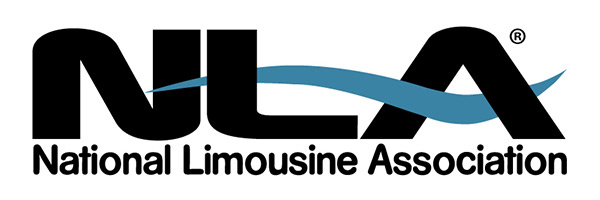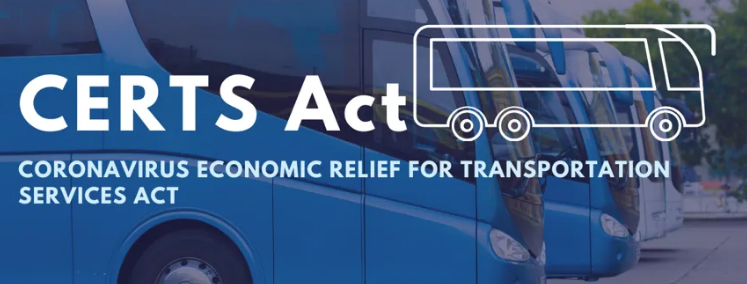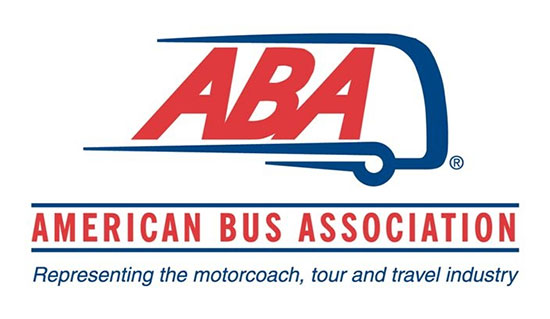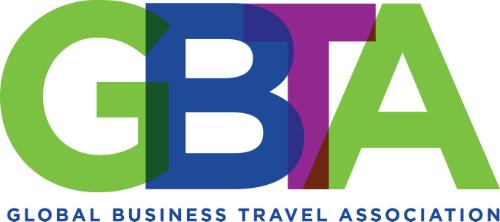- Details
- Category: Industry News
The National Limousine Association (NLA) just launched its Safety Video for 2020—the first of its kind in the NLA and the ground transportation industry as a whole. The video, entitled When It Matters, will serve as another asset for member operators to showcase the safety precautions they are taking to keep riders and drivers safe amidst the COVID-19 pandemic.

“It is with great pride that we continue to provide our membership with assets they can utilize as they continue to offer exemplary service as our country begins to reopen,” said NLA President Robert Alexander of RMA Worldwide. “We are committed to ensuring all those associated with the NLA are supported on an ongoing basis, and the best way to achieve this is by sharing collective resources to help operators regain stability and profitability.”
 NLA safety video entitled, When It Matters
NLA safety video entitled, When It Matters
The video, which allows operators to include their own logo and contact information, accompanies several additional initiatives the NLA has put forth to aid its members during this time of crisis. Current and future initiatives include:
- Creating a list of recommended hygienic protocolsfor drivers, operators, and riders in collaboration with the Global Virus Network. A protocol infosheet can be found here.
- Producing a motion graphic for operators to use internally that will serve as a guide for drivers to communicate effectively with riders about the safety precautions the NLA is taking to safeguard drivers and passengers.
- Hosting its first-ever No Operator Left Behind Virtual Summit to address topics ranging from the state of the travel industry in the wake of the COVID-19 pandemic to business tips for operators and best practices for the future.
Visit limo.org for more information.
[07.20.20]
- Details
- Category: Industry News
The American Bus Association (ABA) welcomed the new U.S. House of Representatives bill called the Coronavirus Economic Relief for Transportation Services (CERTS) Act, which is aimed to help the decimated motorcoach industry survive COVID-19 and was introduced by Reps. Darin LaHood (R-Ill.), Albio Sires (D-N.J), Alan Lowenthal (D-Calif.), and Don Young (R-Alaska).

The CERTS Act is a companion bill to the identically named Coronavirus Economic Relief for Transportation Services (CERTS) Act of 2020 in the Senate, which was introduced in early July by Sens. Jack Reed (D-R.I.) and Susan Collins (R-Maine). This bipartisan legislation would provide $10 billion in emergency economic relief funding in the form of grants (no less than 50 percent of total funding) and other economic assistance through the U.S. Department of the Treasury to motorcoach operators and school bus companies.
 ABA President & CEO Peter Pantuso
ABA President & CEO Peter Pantuso
"We commend Representatives LaHood, Sires, Lowenthal, and Young for their leadership in recognizing the current plight of the motorcoach industry during this pandemic and taking action to help this critical industry survive," said ABA President & CEO Peter Pantuso. "We highlighted to Congress the error they made when they left us out of the CARES Act, and we are very pleased to see both House and Senate members of both parties working to now fix this oversight. The private motorcoach industry moves 600 million people a year—whether it is students, the military, commuters and leisure travel, we are moving America. If we are not there when America is ready to travel again, who will?"
According to the ABA Foundation, the $15 billion-a-year motorcoach industry is currently operating at about 15 percent of capacity because of COVID-19. As a result, most of the nation’s 3,000 bus motorcoach companies have had to furlough employees and their 36,000 vehicles are mostly idle. For those few companies that may operate very limited service, there will be significant additional operating costs as they observe public health recommendations for social distancing, cleaning, and the use of personal protective equipment (PPE). These added costs come on top of already high overhead and insurance costs for the industry, with new buses costing $500,000 or more. And the vehicles in operation may require not only significant debt service, but also ongoing maintenance so they are ready when called upon.

"This industry and its employees provide vital transportation services, playing an essential and critical role in the national transportation network. If the motorcoach industry fails, it will have a devastating and reverberating effect throughout the entire economy," said Pantuso. "The impact will affect not only the capacity of the national transportation network, but also schools, national emergency response capabilities, the manufacturing sector, the financial sector, the tourism sector and beyond. All citizens deserve vital, reliable, and affordable transportation services for their daily lives, and require safe and reliable transportation services."
The House bill does not yet have an assigned number. The text of the Senate bill, S.4150, can be read here.
Visit buses.org for more information.
[07.20.20]
- Details
- Category: Industry News
As signs of recovery continue in the business travel sector, travel procurement professionals are prioritizing the health and safety of employees according to a new poll released on July 16 by the Global Business Travel Association (GBTA). More than half of travel buyers reported their company has changed its travel policy and 70 percent characterize the policy changes as being ‘somewhat’ or ‘a lot.’ When asked what travel program changes have been made due to the pandemic, instituting new rules about pre-trip approval (53 percent), having more frequent or detailed pre-trip communications or briefings (35 percent), collecting health information (virus exposure or preexisting conditions) from employee travelers (24 percent); and clarifying or changing rules about ticket credits/unused tickets (22 percent) were cited most frequently.

Consistent guidelines and standards continue to be critically important across all verticals in business travel; however, there is a need for more communication of safety protocols. While a majority of GBTA companies (68 percent) said they have enough information on supplier cleaning and sanitation practices, one-quarter said they would still like more (24 percent). In addition, half (49 percent) felt they have enough information about operational changes such as flight rescheduling or check-in procedures, but one-third (37 percent) said they would like more information.
Despite the rising infection rates in some parts of the world, companies are still considering a return to travel. Half (49 percent) are considering resuming all travel (regardless of country or region) in the near future, although do not currently have definite plans. Only one in five (18 percent) GBTA member companies report they do not plan to resume all travel in the near future.
|
Region/Country |
Plan to Resume Travel in Near Future (1-3 months) |
Considering Resuming in Near Future, but No Definite Plans | Do Not Plan to Resume in Near Future | Not Sure |
| China | 10% | 32% | 38% | 21% |
| Hong Kong | 9% | 32% | 37% | 21% |
| Taiwan | 10% | 31% | 35% | 24% |
| Asia Pacific (minus China, Hong Kong, and Taiwan) | 11% | 36% | 33% | 20% |
| Europe | 17% | 42% | 23% | 18% |
| Latin America | 8% | 37% | 35% | 21% |
| United States | 24% | 41% | 21% | 14% |
| Canada | 22% | 39% | 22% | 17% |
| Middle East/Africa | 11% | 34% | 34% | 21% |
| All International Travel | 10% | 43% | 29% | 18% |
| All Domestic Travel | 34% | 40% | 12% | 13% |
| All Travel | 14% | 49% | 18% | 19% |
Domestic and essential business travel is likely to resume first. Among respondents who reported their company has canceled at least some domestic business trips, four in ten (44 percent) expect domestic travel to resume in the next 2-3 months. One in three expects domestic travel to resume in the next 6-8 months (34 percent) or are unsure (15 percent). GBTA members in Europe (77 percent) are more likely than members in North America (37 percent) to expect domestic business travel to return in the next 2-3 months.
Among GBTA companies that have canceled at least some international business trips, one in ten (16 percent) said they expect international travel to resume in the next 2-3 months. Two in five expect international travel to resume in the next 6-8 months (40 percent) and one in four are unsure (25 percent) as to when international travel will resume. GBTA companies based in Europe (33 percent) are more likely to expect international business travel to resume in the next 2-3 months than are members based in North America (13 percent).
The return to travel from a supplier perspective follows a similar geographical divide, with more travel suppliers and travel management companies (TMCs) in Europe reporting an increase in bookings (50 percent) than in the U.S. (27 percent). Note: Cases have been trending upward in the U.S. since late June while staying flat in many parts of Europe and Asia. This poll was conducted July 7-13 and included respondents from around the globe.
 Interim Executive Director of GBTA Dave Hilfman
Interim Executive Director of GBTA Dave Hilfman
“The slow recovery of business travel continues with a noticeable uplift in Europe. The U.S. recovery has remained largely static, probably in line with new COVID-19 cases that dominate our headlines, slowing progress,” said GBTA Executive Director Dave Hilfman.
“GBTA is continuing to support members to introduce consistent health and safety measures for every travel vertical, a key requirement to enable travel programs to resume. As we have seen from the poll results, buyers have had to adapt to the changing demands, significantly altering travel policy to reflect the necessary increase in health and safety protocols. GBTA is working with our buyer members to help navigate the new norm and road to recovery.”
When asked how COVID-19 had impacted their organizations, 81 percent of travel suppliers have furloughed employees and 78 percent have reduced or laid-off staff. Half (53 percent) of companies who have furloughed employees have returned some or all staff to work in some capacity.
Most respondents felt the business travel industry has experienced the worst in terms of canceled flights (73 percent) and hotel operations suspension (66 percent). However, one in four said they believe the worst is yet to come in terms of layoffs/furloughs and revenue loss (44 percent each).
Methodology
The poll conducted by GBTA is the 9th poll of the membership to measure the effects of COVID-19 on business travel. The poll was fielded from July 7-13, 2020, and received 2,167 responses from member companies globally. View the entire poll results here.
Previous GBTA poll results can be viewed here, here, and here.
Visit gbta.org for more information.
[07.16.20]

